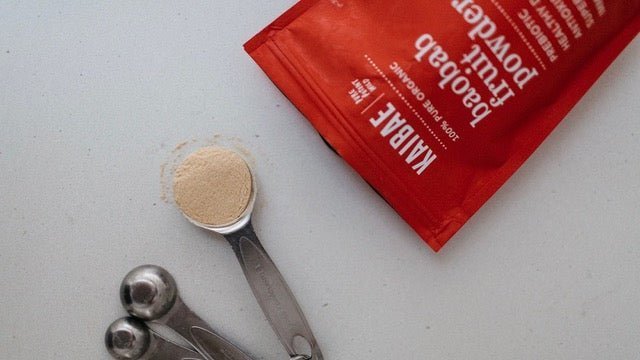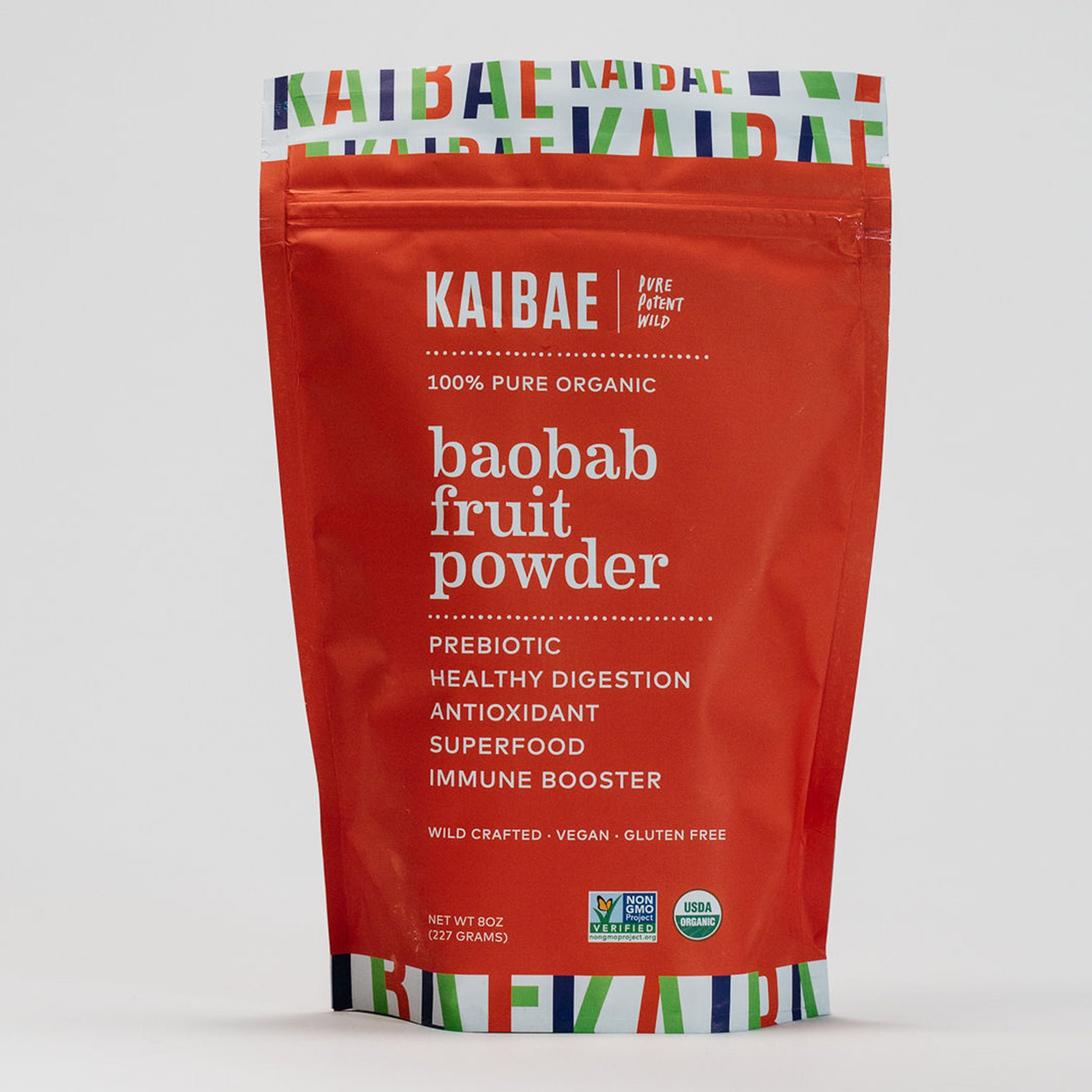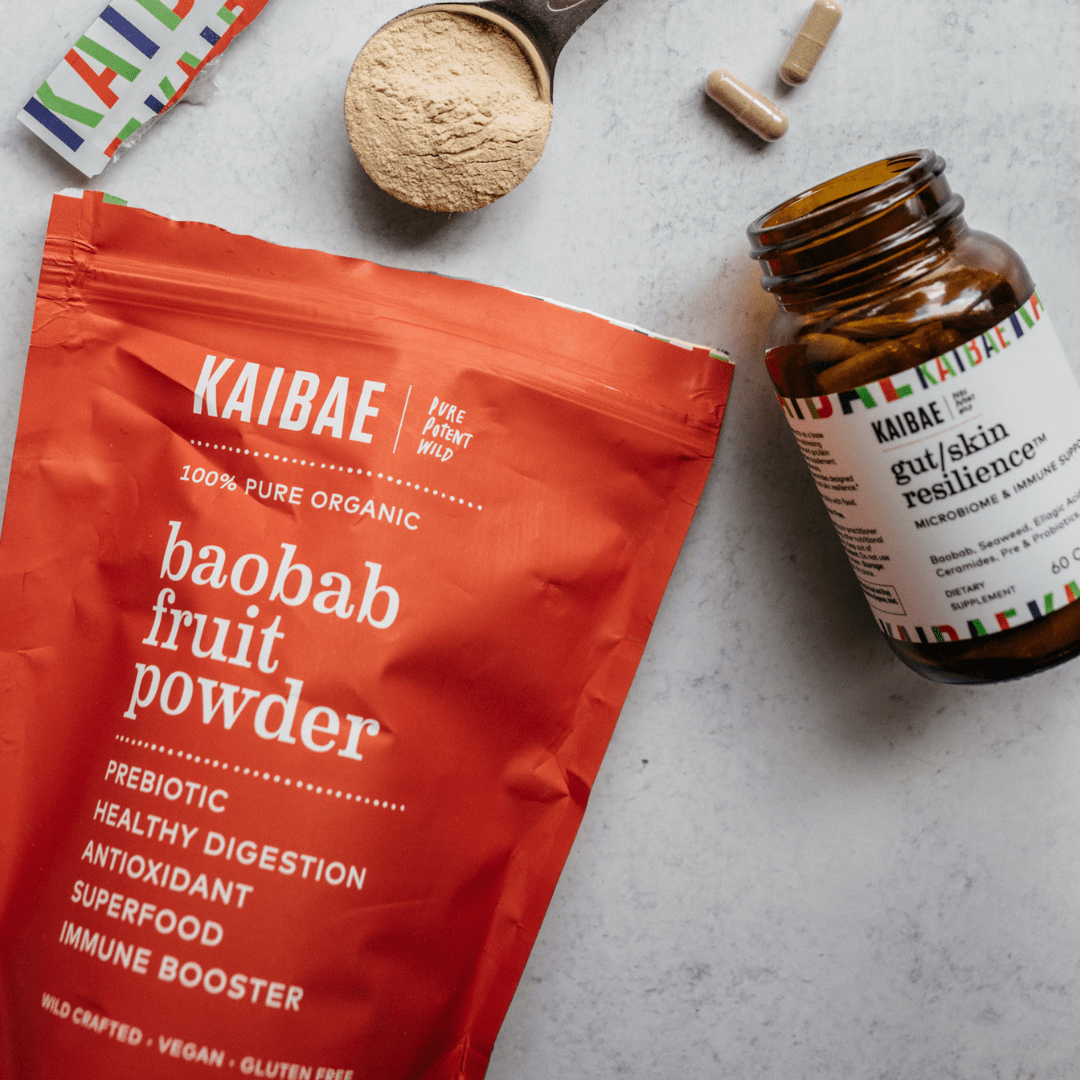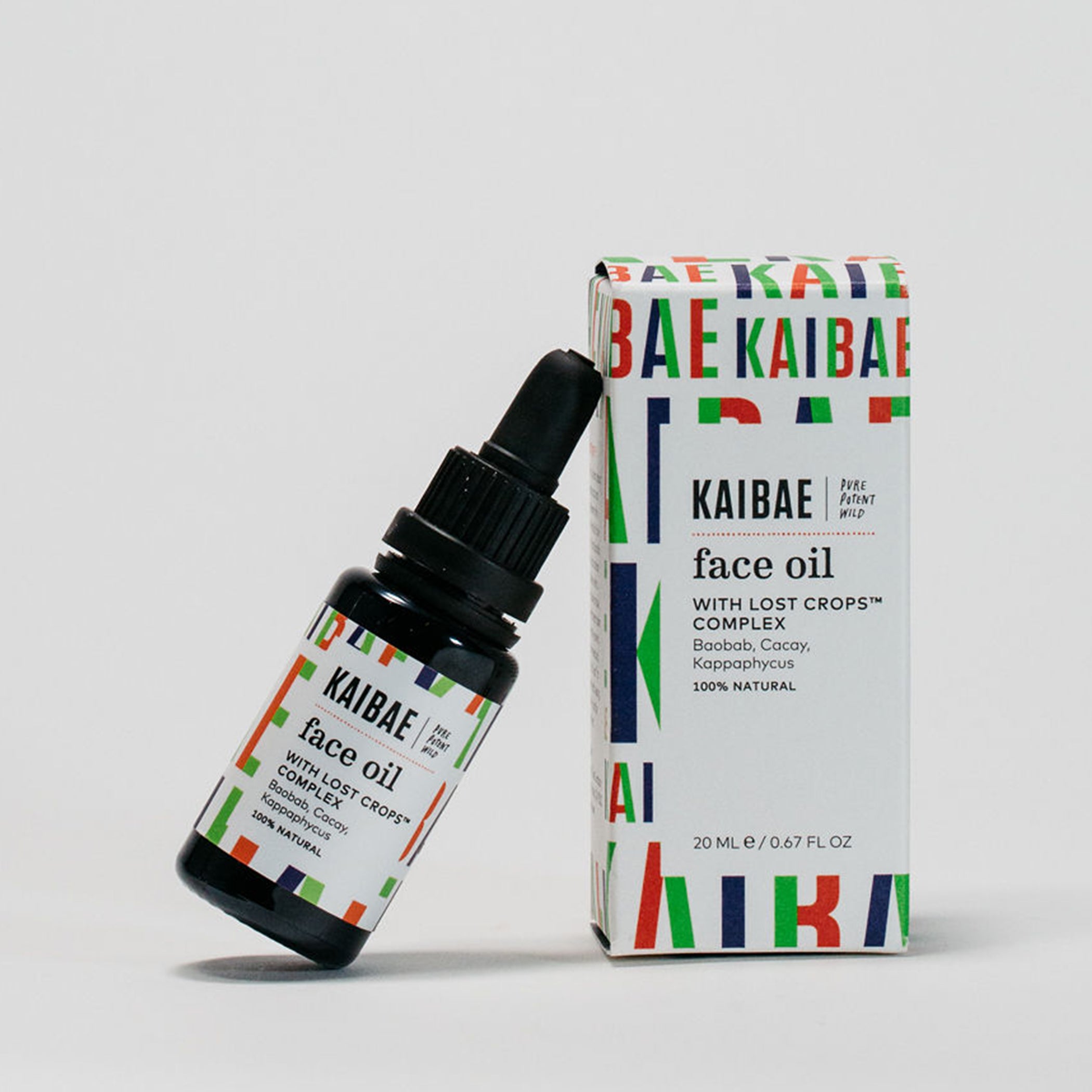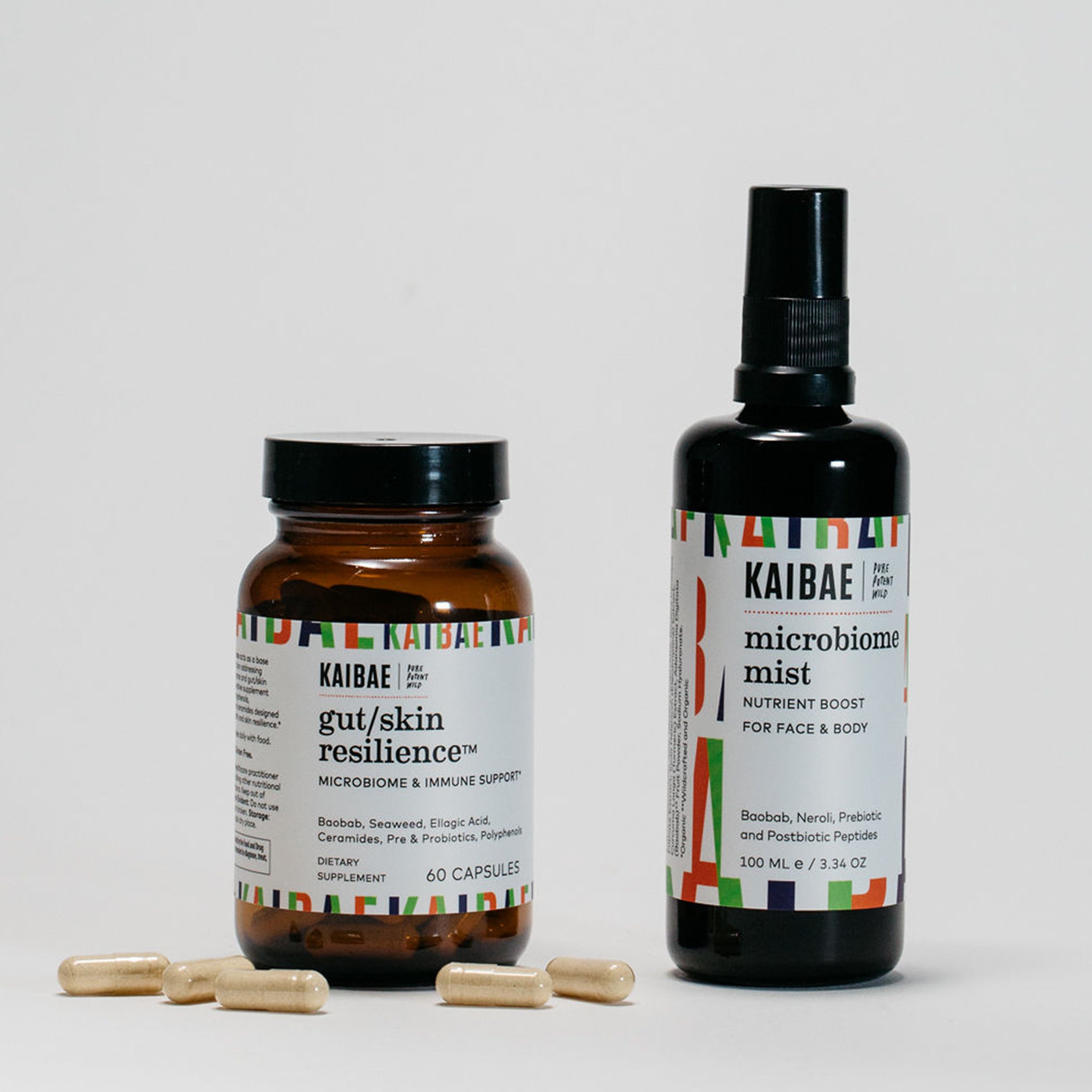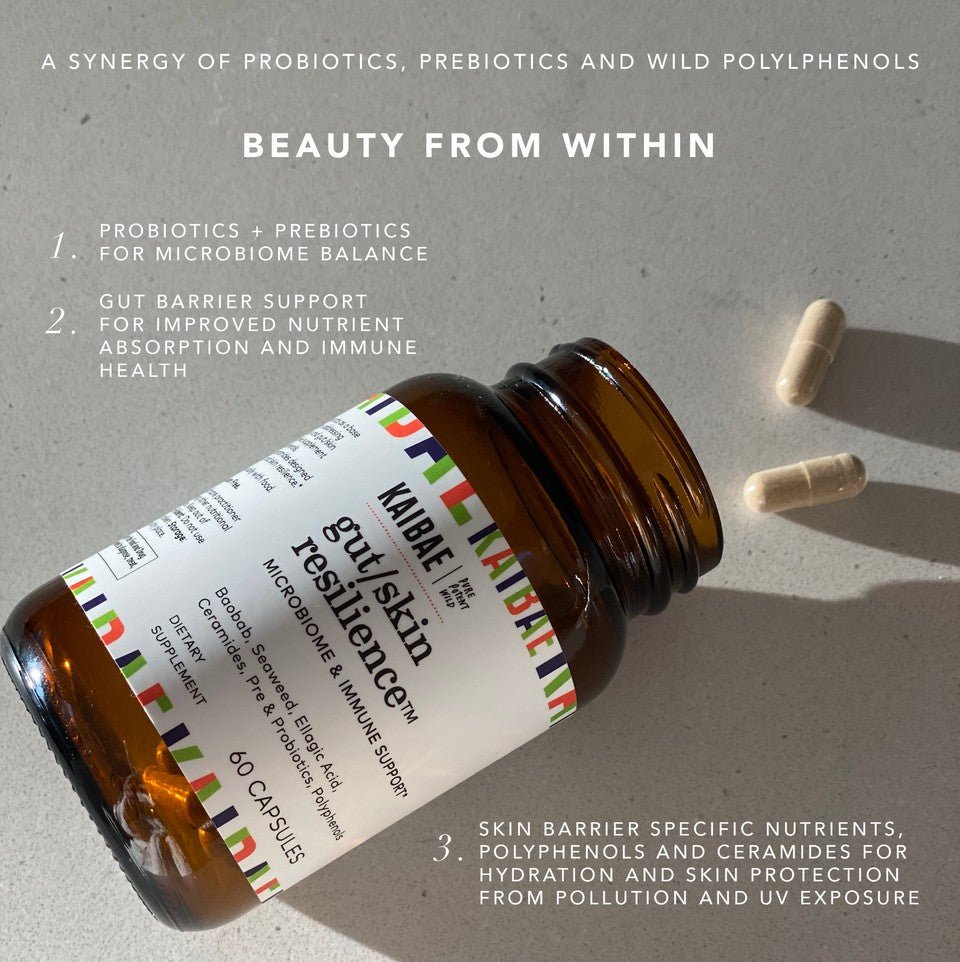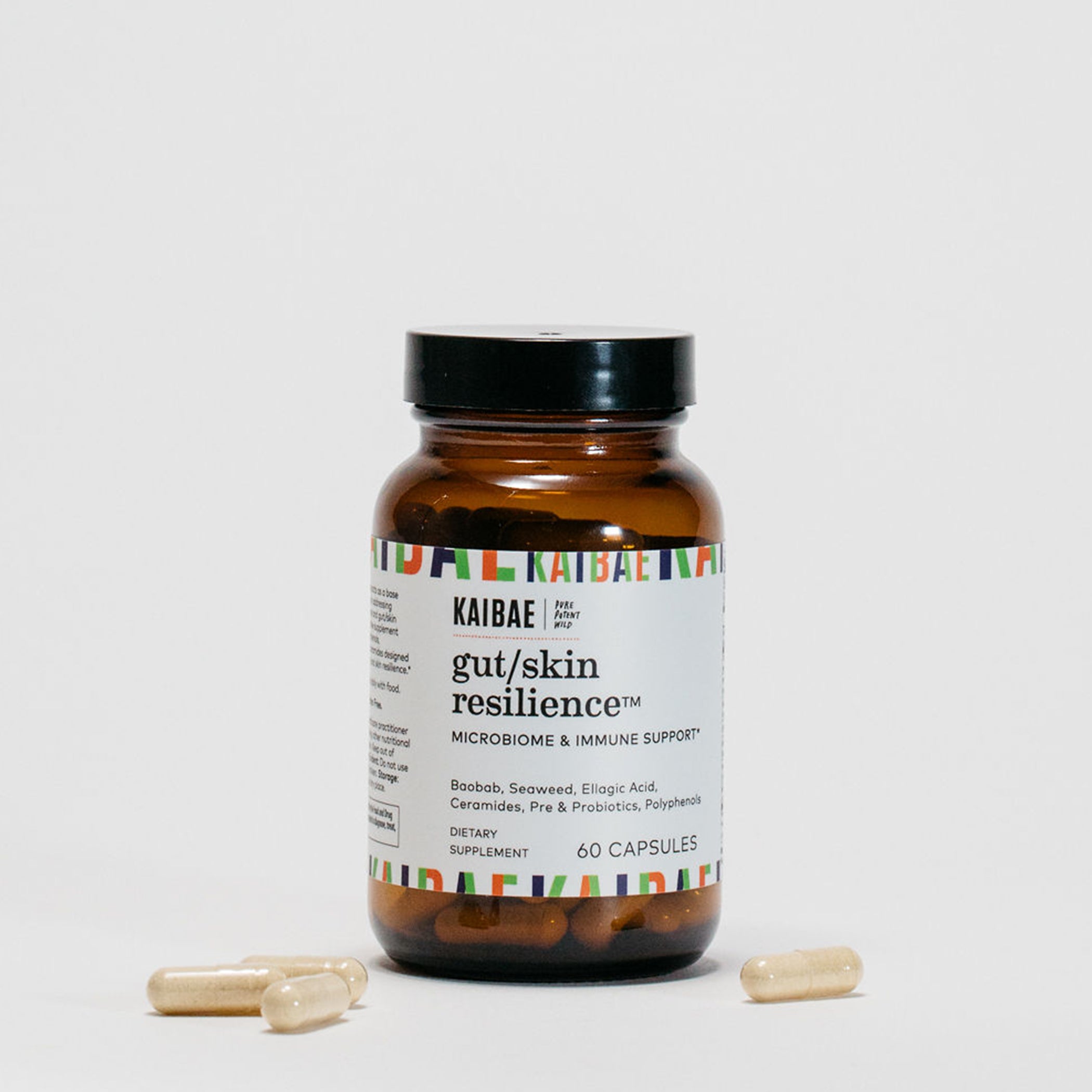A Healthy Immune System Begins With The Gut

updated May 25, 2024
The Interplay Between Your Gut Microbiome and Immune System
In recent years, the gut microbiome has emerged as a focal point in understanding human health. This complex ecosystem of trillions of microorganisms residing in our digestive tract plays a crucial role in all bodily functions. The gut microbiome significantly impacts the immune system. Before the onset of COVID-19, concerns about immune health may only have come to mind with a runny nose, a cough, fever with a cold, the flu, or allergy. Studies show that our individualized reactions to viruses, bacteria, or allergens are closely related to our gut health. With 70% percent of the immune system residing in the gut, its resilience is affected by your diet, the environment, and the microorganisms that compose the gut microbiome.
What is the Gut Microbiome?
The gut microbiome includes bacteria, viruses, fungi, and other microorganisms. These microbes actively contribute to digestion, nutrient absorption, and the production of essential vitamins. The diversity of the gut microbiome is vital for its proper functioning. A healthy gut microbiome is rich in a variety of microbial species that coexist harmoniously. If you've heard of the role of probiotics and microbiome balance, you know that these bacteria are essential to maintaining your health.
Dysbiosis: When the Balance is Disrupted
Dysbiosis refers to an imbalance in the gut microbiome, often characterized by a reduction in microbial diversity and an overgrowth of harmful bacteria. This imbalance can have significant repercussions for the immune system.
Increased Inflammation: Dysbiosis can trigger chronic inflammation, contributing to the development of conditions like joint pain, migraine, irritable bowel syndrome
Autoimmune Diseases: Dysbiosis has been linked to the development of autoimmune diseases, where the immune system mistakenly attacks the body's tissue seen with inflammatory bowel disease (IBD), rheumatoid arthritis, type 2 diabetes, and multiple sclerosis.
Cancer: Changes in the microbiome are associated with damaging DNA and increasing cancer risk.
Weakened Immune Responses: An imbalanced microbiome can impair the immune system's resilience which can be reflected in the respiratory tract with an increased susceptibility to infections or allergies.

Gut-Lung axis
The lungs have a bidirectional relationship with the gut, meaning that gut health influences lung health, and the lungs influence gut health.
When bacteria or viruses infect the lungs, they produce metabolites that spread through the blood and trigger inflammation throughout the body and the gut. The gut produces immune cells and metabolites that help fight bacterial and viral infections in the lungs.
Research shows that patients with a healthy gut microbiome recovered faster from COVID-19 and had less severe symptoms and patients whose lung function was affected by air pollution had a higher incidence of COVID-19. Clean air outside and indoors with a healthy diet is essential to maintain a resilient gut-lung axis.
Gut microbiome and Allergies
If you suffer from allergies, whether pets or food or environmental, you can reduce the severity of your allergic reactions by improving gut health.
Adding prebiotic fiber to your diet has been shown to calm inflammation in the gut and reduce the severity of an allergic reaction.

Maintaining a Healthy Gut Microbiome
The close relationship between digestive health and immune function has long been observed in traditional Chinese medicine. They understood that poor food choices weaken the Spleen which according to this system of medicine is responsible for extracting the essential nutrients from our food. Common signs of Spleen deficiency include poor appetite, bloating or abdominal distension, fatigue after eating, tiredness, mental fatigue/fogginess, pale complexion, and loose stools. This symptom profile closely resembles a gut microbiome imbalance. To support a healthy gut microbiome and, by extension, a robust immune system, consider the following strategies:
Choose a Balanced Diet: Consume a diet rich in fiber, fruits, vegetables, and fermented foods. The Mediterranean diet has been shown the improve gut health with foods that provide prebiotic benefits that nourish beneficial gut bacteria.
Increase Prebiotic Fiber: 90% of Americans do not have enough fiber in their diet.Especially prebiotic fiber which is fermented in the gut to produce beneficial bacteria is important for immune health. While inulin and resistant starch are commonly known prebiotics. A prebiotic to consider is Baobab, a broad-acting super fiber from the African Savanna that also includes vitamin C and polyphenols with more gut benefits.
Include Probiotic Supplements: Probiotic supplements can help restore microbial balance, especially after antibiotic treatment or in cases of dysbiosis..
Increase Exercise: Physical activity has been shown to promote microbial diversity and gut health.
Add Stress Management: Chronic stress can negatively impact the gut microbiome. Practices like mindfulness, meditation, and adequate sleep can help maintain microbial balance.
Take Away
The relationship between the gut microbiome and the immune system is a fascinating example of the body's interconnectedness. A healthy gut microbiome is essential for a well-functioning immune system, providing both defense against pathogens and regulation of immune responses. By understanding and nurturing this symbiotic relationship, we can take proactive steps such as improving our diet and including the prebiotic benefits of baobab super fiber to improve our overall health and resilience against disease.
Shop Baobab




